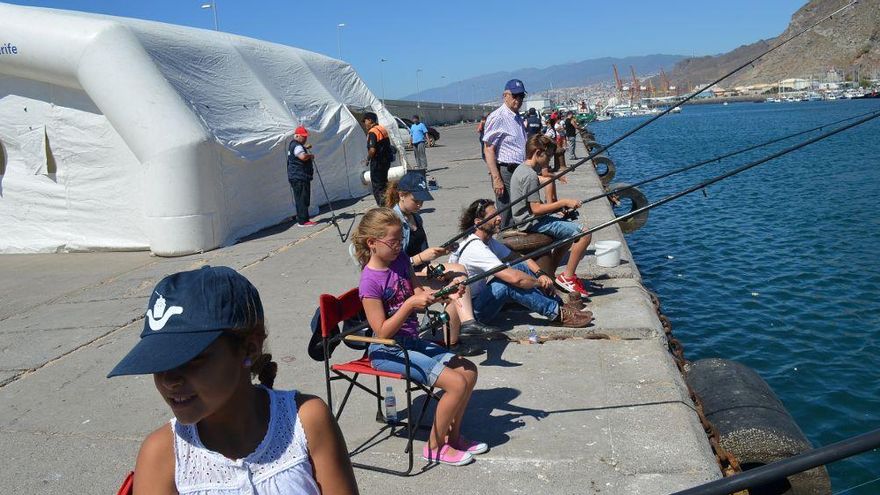
A campaign, the result of public-private collaboration, will raise awareness of the “sustainable and responsible” recreational fishing on Tenerife. The island councilor for Agriculture, Livestock and Fisheries, Javier Parrilla, highlights as the foundation of the initiative “the need to improve the dissemination and information of those who practice it.” There are thousands of people, locals and visitors, who enjoy an unknown activity, especially in terms of regulation and regulations. The objective of the dissemination promoted jointly by the Tenerife Coastal Action Group (GAC) and the Cabildo is to reconcile leisure and the generation of economy that it entails with the importance of preserving fishing resources and the biodiversity of the waters. Enjoy together with sustainability of the coast.
The objective is to transfer all the normative linked to this activity to the groups that practice it, both residents and tourists, with special emphasis on those whose main language is not Spanish. As part of the information campaign, which will take place throughout the year, the promotion of a Web page in five languages, the preparation and distribution of brochures with the main regulations, the holding of informative sessions in various relevant points of the Island, the promotion of the website in travel agencies and coastal town halls, as well as the publication of informative articles in the media local communications (in Spanish and other languages).
It is, therefore, about trying to ensure general knowledge of the regulations regarding aspects such as kilos, minimum sizes, permitted species or closed seasons, as well as reporting on good practices, security conditions and measures to protect the marine environment, explained the island councilor.
very common activity
For her part, the manager of GAC de Tenerife, Katiuska González, recalls that the recreational fishing It is a very common activity in Canary Islands, as well as an important tourist and entertainment attraction. To practice it, however, it is mandatory to have a license. There are three types: first class (for fishing from a boat), second class (for spearfishing and shellfishing on foot) and third class (for surface, shore or boat fishing and shellfishing on foot).
González explains: ««The regulation related to recreational fishing is very complex and is usually exposed in Spanish; hence the need to launch this campaign, which affects not only legislative issues, but also environmental».
The manager argues that the objective is that whoever goes out to sea looks for a playful use, but also sustainableand find out what you can do to improve the situation of the island’s sea and the species that live in it.
The informative leaflet that will be distributed specifies the species that can be fished and those that are protected. In addition, it accounts for the different spaces for the development of recreational fishing, from the shore to the underwater backgrounds going through the boats. Finally, it details the different arts that are allowed or prohibited in each of the types of fishing.
Normative
Last year, 10,267 licenses were issued in the Canary Islands. All of them can be processed electronically or in person and requested together. They are valid for three years and it is mandatory to carry them when you go fishing, along with an identity document. Similarly, it should be noted that recreational fishing licenses issued in other Spanish autonomous communities are also valid in Canary Islands.
The campaign is included within the line of actions to revitalize and conserve the coast carried out by the Tenerife Coastal Action Group, an association made up of agents related to fishing, the coast and the marine environment. It is financed by the Cabildo, the European Maritime and Fisheries Fund (FEMP) and the General Directorate of Fisheries of the Government of the Canary Islands.















